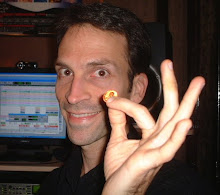Nobody likes to dwell on thoughts of mortality, especially young musicians who are just trying to get established in the world. However, the recent untimely passing of artists like Michael Jackson and his longtime guitarist, David Williams, should remind us all of the importance of basic estate planning.
You might be thinking "I don't have any assets to worry about, so why does it matter if I die without a will?". It matters because somebody will have to deal with your estate (no matter how small) when you die, and probably one of your close relatives will get charged with the task. Do you really want to subject your family to the trouble of sorting out your financial affairs, on top of the grief they will undoubtedly already be dealing with? Besides, I'll bet you have at least one thing that you would like to leave specifically to a particular person, even if it's just an old family photo album or a cherished instrument.
Unfortunately, it can be somewhat costly to hire an attorney to create estate documents for you, but that is the surest way to get the job done properly in compliance with your state and local laws. If you own substantial assets like a house, have multiple dependents, or an otherwise complicated estate, I would really recommend that you spend a few hundred dollars and hire an attorney to create your documents.
On the other hand, if you are a typical young, single, musician with a simple estate, it might be adequate to use some inexpensive software or self-help books for creating basic estate documents. Here are a few links to check out:
Make Your Own Living Trust
Quicken Willmaker
Suze Orman's Will and Trust Kit
The basic documents most often recommended for estate planning are wills, living trusts, and living wills. A will is your official statement designating the person you want to take charge of your estate distribution and how you want your assets handled upon your death. Dying intestate (without a will) usually leads to the state taking charge and might result in long delays or in your assets being distributed in some way that you didn't intend. Requirements for wills vary in different jurisdictions, and often even properly written wills must go through official probate hearings in court before assets can be distributed. A living trust is basically a way of transferring property without having to go through court probate hearings. It is useful to enable quick transfer of assets after your death. A living will or health care directive is a document that specifies your desires about life-prolonging medical treatments in the event that you become incapacitated and unable to speak for yourself.
It's also a good idea to speak with your heirs and put in writing your wishes regarding funeral arrangements, any people who should be notified of your death, what they should do with your pets, etc. The more openly you discuss this stuff now, the easier it will be for them when you are gone. And I hope that's a long, long time from now. But I recommend that you start the discussion now.
Subscribe to:
Post Comments (Atom)






1 comment:
This info you provided in the blog that was really unique I love it!!! the credit people
Post a Comment